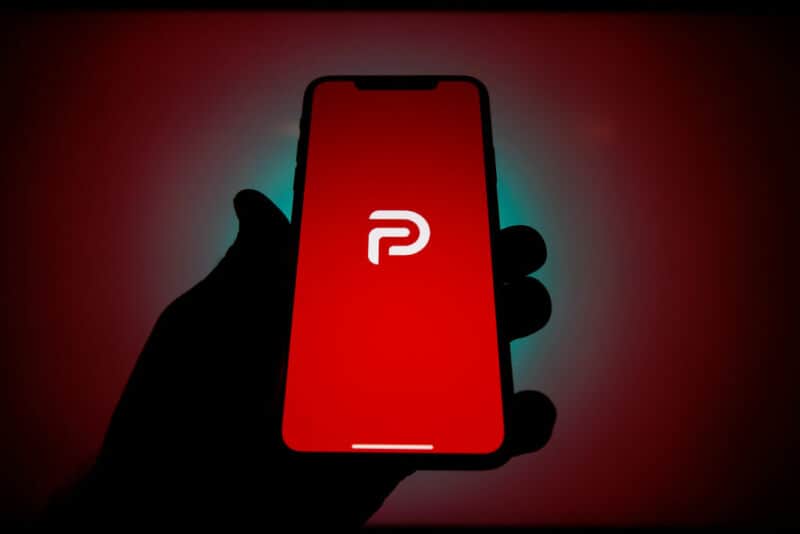Parler is about to be re-platformed.
The app for the “free speech” social media company will be available once again on Apple’s App Store. Apple reinstated Parler on April 14, according to a letter from Apple to Sen. Mike Lee (R-Utah) and Rep. Ken Buck (R-Colo.), which was made public today. Once Parler releases an updated app, iOS users will be able to download it once more.
In the letter to Lee and Buck, Apple said that its App Store review team had spoken with Parler at length about how to bring the app into compliance with company guidelines. “As a result of those conversations, Parler has proposed updates to its app and the app’s content moderation practices,” wrote Timothy Powderly, Apple’s senior director of government affairs.
Parler was kicked off both Apple’s and Google’s app stores in the wake of the January 6 insurrection at the US Capitol, which left five people dead and hundreds more injured. Shortly thereafter, Amazon terminated hosting services for Parler. At the time, all three Big Tech firms said the social media company had not done enough to moderate posts that incited violence. Apple, in its letter, said it still stands by its decision to ban the app in January, and it made sure to point out that it reached that decision independently of Google and Amazon.
Google is reportedly open to allowing Parler back into the Google Play Store. In a statement made to Android Police following Apple’s reinstatement of the Parler app, the company said, “Parler is welcome back in the Play store once it submits an app that complies with our policies.
Parler initially launched in August 2018, and its founders claimed it would be a “non-biased, free speech social media,” a pitch that pushed the false narrative that conservative voices were being censored on other social media platforms. It was founded by John Matze, Jared Thomson, and Republican political donor Rebekah Mercer. While the latter two remain, Matze was fired on January 30 in a brouhaha over implementing content moderation in an attempt to get Parler back into Apple’s and Google’s app stores.
Moderation on Parler reportedly was spotty at best. Parler reportedly alerted the FBI to threats made on the platform, but it apparently did little to remove them before the insurrection. The site’s rules forbid users from posting threats and criminal activity, but there was evidence of both. Unlike other social media platforms, there was limited automated moderation. Instead, the site relied more heavily on part-time paid “jurors” drawn from a pool of Parler users. Superficially, Parler takes a Twitter-style approach to social media. Posts are limited to 1,000 characters, and users can upload images to share with others.
In the wake of the riot, a hacker scraped and released nearly every post made on Parler, an archive of around 80 terabytes of data. The hack was relatively straightforward—Parler’s public API did not require any authentication, and posts were incremented numerically, allowing nearly anyone who knew of it to easily access reams of posts, images, and videos. The site didn’t scrub location data from images or videos, either, as other social media platforms often do, allowing anyone to quickly determine where the media was recorded.
Those images, videos, and location data have factored into investigations in the Capitol insurrection. Users left a digital trail of their activities inside the Capitol building, allowing law enforcement to identify and charge. One Parler user, Eduard Florea, was investigated for posting threats about Sen. Raphael Warnock (D-Ga.) and ultimately charged with illegal possession of ammunition.

